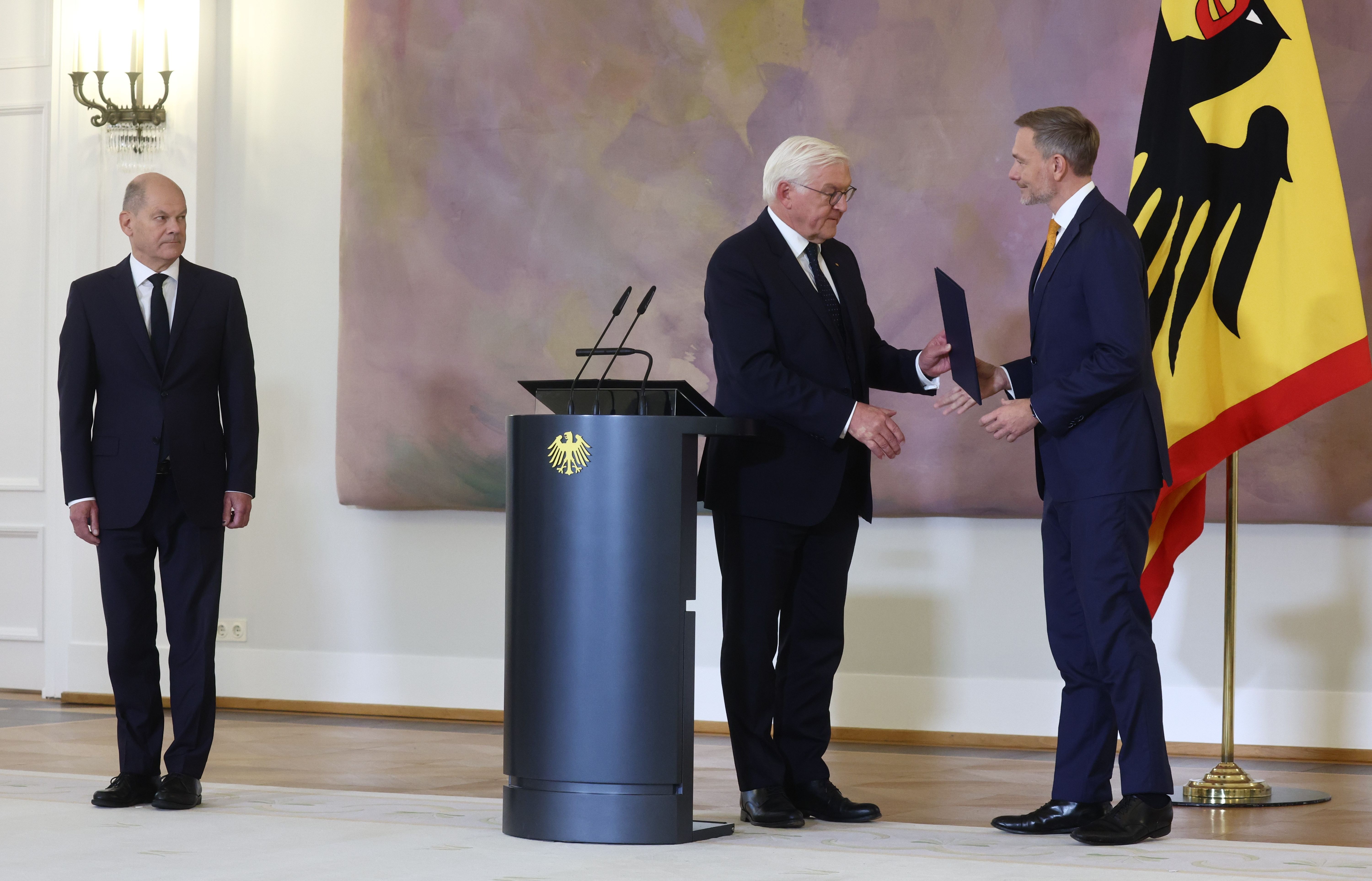Divisions among the members of Germany’s fractious and unpopular governing coalition have reached a breaking point over the proposed budget for 2025. The conflict exposed the starkly different economic policy outlooks of the junior coalition parties — Greens and Liberals (FDP) — with the Social Democrat (SPD) Chancellor Olaf Scholz attempting furiously to mediate a compromise.
After an inconclusive make-or-break meeting on November 6 with the two feuding ministers — Finance Minister Christian Lindner (FDP) and Economics Minister Robert Habeck (Greens) — Scholz announced the firing of Lindner and the collapse of the governing coalition. A caretaker government of SPD and Greens would continue in power through December, with a vote of confidence in January and new elections in March.
The stubborn persistence until now of this much unloved coalition almost certainly reflected the reluctance of all three parties to face what could be a harsh reckoning in early elections, which, if the coalition had survived, would have been held next September.
All three parties have seen their already shaky public support weaken as this recent crisis became more public and more bitter than antecedent quarrels. The coalition parties nevertheless were widely expected to avoid a disruptive breach just as Europeans begin to weigh the implications of the U.S. presidential election results.
Christian Lindner’s pro-business FDP is now polling nationally at about 3%, below the threshold for winning party list seats in the Bundestag. He has been a strong defender of the so-called debt brake, constraining the public sector deficit to no more than 3% of GDP. In a highly irregular move, he leaked last weekend a policy paper offering his own sharply divergent ideas on economic policy, without consultation with partners.
He may have calculated that the FDP had little to lose by provoking the collapse of the coalition and early elections, and to obliquely signal interest in an eventual coalition with the Christian Democrats, who have a commanding lead in opinion polls.
The power struggle has arisen from the imperative to address voters’ concerns about the bleak economic situation, stemming in part from the economic consequences of the war in Ukraine, including higher energy prices and the costs of military and financial support for Ukraine.
Economy minister Habeck recently projected that the economy would contract in 2024 by 0.2%, a downward adjustment from the previous forecast. Germany’s economic malaise is not unique in Europe. There is low public support across Europe for the leadership of mainstream parties and a rise of populist-nationalist challengers, as seen in the European parliament elections in June and in elections in Germany’s eastern states in September.
The most recent phase of slow growth or recession for Germany began in late 2021 and affects core industrial sectors including chemicals and steel, both of which are energy intensive and have not been able to adjust fully to higher prices for natural gas, formerly imported from Russia. The other troubled sector is Germany’s flagship exporting automotive industry. The weakness of this sector can be directly related to the challenge of Chinese electric vehicles both in China’s domestic market and in Europe.
The announcement by Volkswagen in October of its intention to close three plants in Germany and to shed thousands of jobs was a first in the company’s history and contributed to the political crisis. The powerful IG Metall labor union representing the VW workforce and a major part of the SPD’s political base, vowed to resist the planned closures, as did the government and opposition in the state of Lower Saxony, which owns one fifth of VW shares.
In September, the U.S. company Intel announced it would postpone, for at least two years, a planned €30 billion investment in a chip production facility in Magdeburg, aimed in particular to supplying Germany’s automotive industry’s modernization. This project would also have boosted economic development in the former East Germany.
Scholz’s uncharacteristically bold move to jettison Lindner and bring elections forward is clearly aimed at restoring the electoral appeal of his own party and that of the Greens who will remain in a caretaker government until elections in March. The support for the coalition as a whole has suffered in part because of frequent disagreements and paralysis. The three parties’ combined support is only about 30% of the electorate by the most recent polls. The Christian Democrats (CDU-CSU) have more than 30% by themselves, but would still have to find coalition partners in order to form a governing majority.
The two most dynamic political parties are the populist right Alternative for Germany (AfD) and the populist left Sahra Wagenknecht Alliance (BSW), both of which derive some of their appeal from their opposition to the further support for Ukraine. Opponents of the European elites’ stance on Ukraine have performed well in Germany and France, and elsewhere in Europe.
The weakness of the incumbent government and of the mainstream opposition CDU limits Germany’s capacity to launch any diplomatic initiative that could end the war in Ukraine or to help formulate a concerted European approach to security arrangements to include Ukraine in the post-conflict period.
















